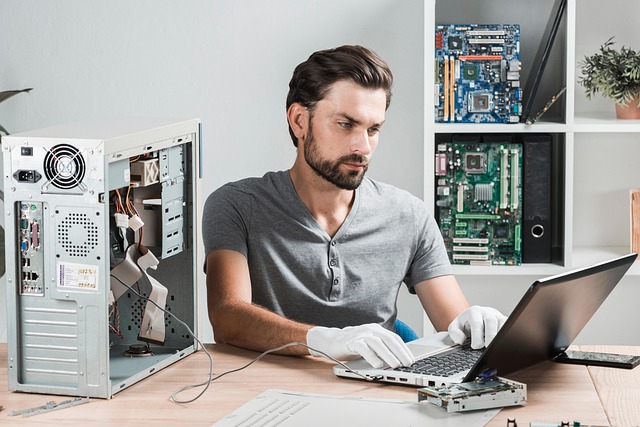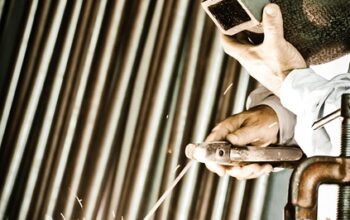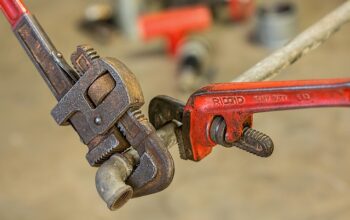Homeowners can tackle common appliance issues (e.g., non-cooling fridge, poor dishwasher performance) with basic knowledge, online guides, and regular maintenance. For complex issues or persistent problems, professional assistance from qualified technicians is required. Safe installation practices include correct placement, secure connections, and functional testing. Regular cleaning, inspection, and safety tests prevent costly repairs and extend appliance lifespans. Recognize signs like power failures, unusual noises, leaks, or frequent breakdowns as indicators for professional help.
Appliances are integral to modern living, making smooth operation and efficient maintenance crucial for any homeowner. This comprehensive guide delves into the world of home repair and maintenance, focusing on appliance installation, troubleshooting common issues, and knowing when to call a professional. From understanding basic mechanics to advanced repair tips, these insights empower you to keep your appliances running optimally, ensuring a well-maintained household.
- Understanding Common Appliance Issues and Basic Troubleshooting
- Step-by-Step Guide to Safe and Efficient Appliance Installation
- When to Call a Professional: Major Appliance Repair and Maintenance Tips
Understanding Common Appliance Issues and Basic Troubleshooting

Many common appliance issues can be easily diagnosed and resolved by homeowners with a basic understanding of home repair and maintenance. Before reaching for a toolset or calling a professional, it’s helpful to know the most frequent problems and their potential causes. For instance, a refrigerator not cooling properly might be due to a faulty thermostat or a blocked condensate drain, rather than an inherent malfunction in the appliance itself. Similarly, a dishwasher with sporadic cleaning performance could be remedied by clearing a clogged filter, ensuring proper detergent usage, or replacing worn seals.
By tackling these basic troubleshooting steps first, homeowners can often save time and money. Online resources and how-to guides are abundant for common appliance issues, providing step-by-step instructions tailored to specific models. However, if the problem persists after attempting DIY repairs, or if the appliance is older and more complex, it’s best to consult a qualified technician. Regular maintenance checks can also help prevent future breakdowns, keeping your home appliances running smoothly and efficiently.
Step-by-Step Guide to Safe and Efficient Appliance Installation

When installing an appliance, safety should always be a top priority in your home repair and maintenance routine. Begin by ensuring the space is clear and well-lit for easy access to all sides of the appliance. Next, carefully unpackage the item, checking for any damage during transit. Follow the manufacturer’s instructions regarding placement, adjusting feet or leveling mechanisms as needed to ensure stability.
Secure the appliance firmly in place using appropriate hardware provided by the manufacturer or high-quality screws and anchors suited to your flooring type. Connect all power cords and water lines correctly, double-checking that connections are tight and secure to prevent any accidents. Test the appliance’s functionality before final touches, ensuring it operates smoothly and efficiently as expected, thereby enhancing your home’s comfort and safety.
When to Call a Professional: Major Appliance Repair and Maintenance Tips

When to Call a Professional for Major Appliance Repair
While minor appliance issues can often be addressed through simple troubleshooting or DIY fixes, it’s crucial to recognize when to step back and call in a professional. Home repair and maintenance experts recommend seeking professional assistance for major appliances due to the potential hazards involved, such as electrical risks, gas leaks, or complex internal mechanisms. If your appliance is not turning on, making unusual sounds, leaking substances, or showing signs of old age and frequent breakdowns, it might be time to consider repair services.
Regular maintenance can also play a significant role in preventing major repairs. Experts suggest scheduling routine checks for appliances like refrigerators, washing machines, and ovens to ensure optimal performance and longevity. This includes cleaning filters, inspecting connections, and testing safety features. By staying proactive with home repair and maintenance, you can avoid costly emergency repairs and extend the lifespan of your valuable appliances.
Whether tackling common appliance issues or ensuring proper installation, understanding the basics of home repair and maintenance is empowering. By familiarizing yourself with troubleshooting techniques and knowing when to seek professional help, you can extend the lifespan of your major appliances and save on costly repairs. Remember, timely maintenance and a proactive approach are key to keeping your household running smoothly.




